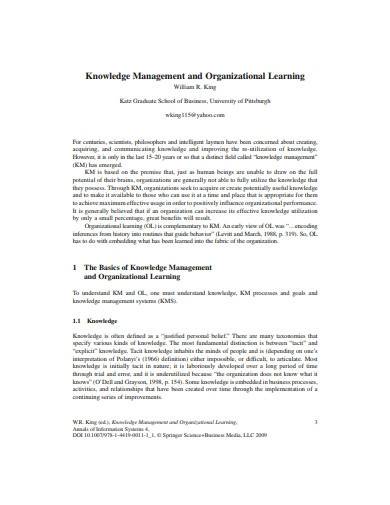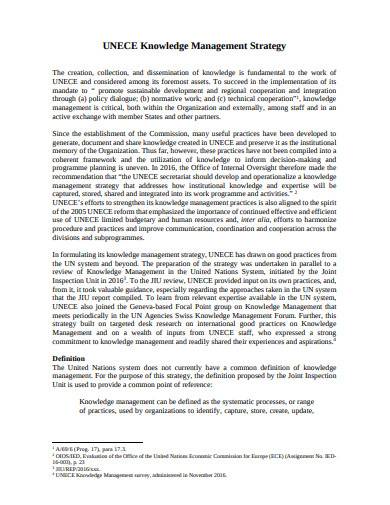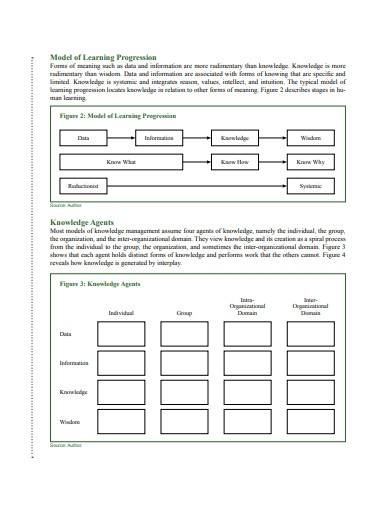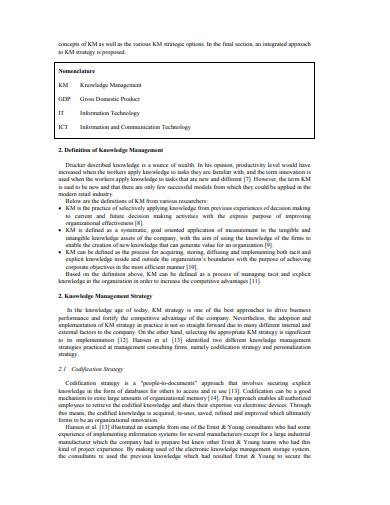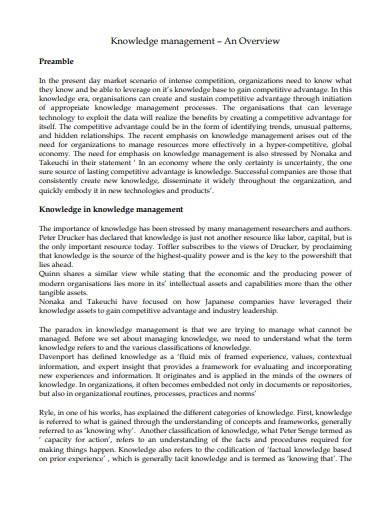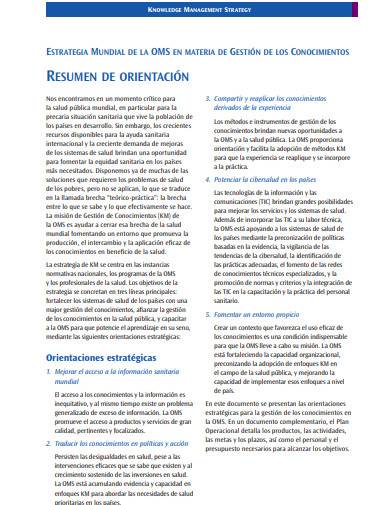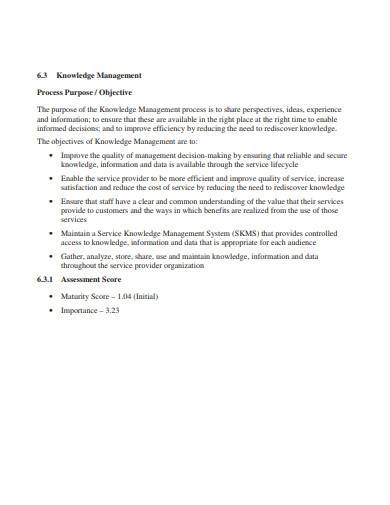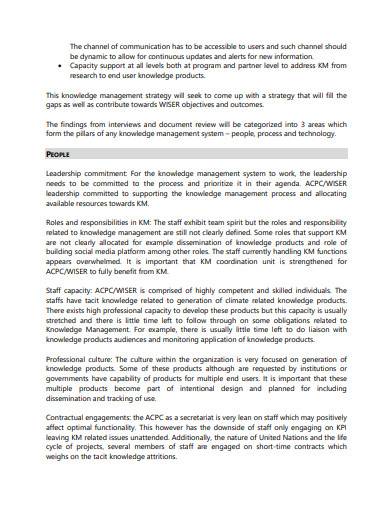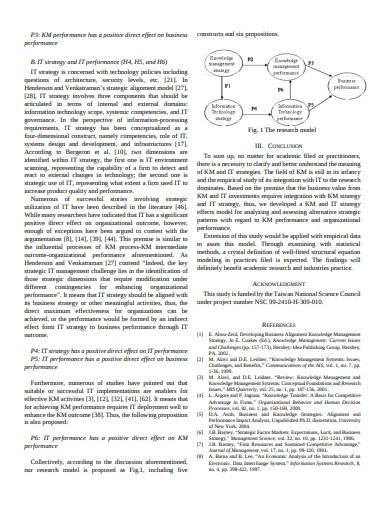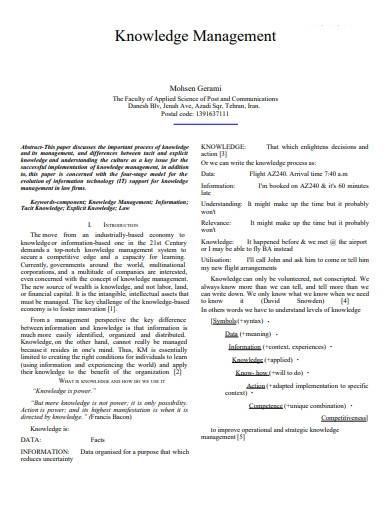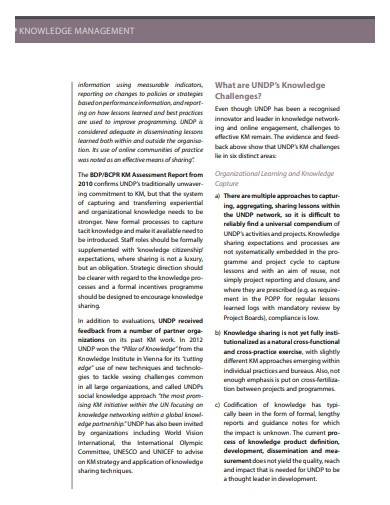One effective way of maximizing a company’s potential is to take advantage of all the expertise it possesses within its organization. Companies are the result of their knowledge and their success or failure depends on how they capture, share, store, and manage their information while achieving their business goals. Accessible knowledge allows enhanced productivity and without it, employees can become stressed and inefficient. Knowledge management allows employees to easily access all information and ask internal professionals about questions they might have.
FREE 10+ Knowledge Management Samples & Templates in PDF
1. Knowledge Management and Organization Learning
2. Knowledge Management Strategy
3. Knowledge Management Template
4. Integrated Knowledge Management Strategy
5. Knowledge Management Overview Template
6. Basic Knowledge Management Strategy
7. Sample Knowledge Management
8. Standard Knowledge Management
9. Knowledge Management Strategy Sample
10. Basic Knowledge Management Template
11. Simple Knowledge Management
What is Knowledge Management?
Knowledge management refers to the process in which an organization or company collects, organizes, shares, and evaluates its knowledge using a method that is easily accessible by the employees. Knowledge management involves an operations strategy plan or management plan, development plan, and strategic planning to quickly achieve business outcomes and objectives with enhanced organizational learning and collaboration among employees, resulting in a faster decision-making process across the entire organization or business.
How to Implement Knowledge Management
Knowledge management not only refers to the process where organizations gather, manage, and share information with their clients, employees, and business partners but also refers to the technology they utilize to access, include, and update all of the information they possess. This process also includes data mining and other methods of operation to deliver information, making it easier for users to access. A knowledge management plan contains a survey of business or corporate goal setting and an evaluation of both traditional and technical tools to determine a company’s business requirements.
Step 1: Determine Role Model Companies and Skilled Individuals
Research the connections within your role model company to talk about their knowledge management experience and the story of their beginnings. To develop knowledge management channels, enhance your company’s skills in project management, content management, and technical writing.
Step 2: Utilize Software to Simplify Knowledge Management
With smart software, you can automatically present relevant information or articles to respond to search queries. Technology can also help automate other aspects of your workflow like regularly prompting knowledge providers to update articles or ask experts to check the authenticity and relevance of content before you publish it.
Step 3: Provide a Method of Sharing Across the Company
The participation of the entire company determines the effectiveness of knowledge management. Create a mission statement that describes your purpose to explain the necessity of knowledge management in your organization.
Step 4: Repeat Over a Period of Time
Take advantage of tools that will help you simplify the process of collecting and storing accurate information. This tool should also enable an efficient and accessible method of delivering information to your customers and team members.
FAQs
What are the different types of knowledge management?
The different types of knowledge management include explicit knowledge which is information that can be easily documented, shared, and measured, implicit knowledge which is the ability to gather explicit knowledge and relate it to the problem, and tacit knowledge which refers to information that can’t be easily expressed or written down.
What are the benefits of utilizing knowledge management?
With knowledge management, customers can provide customer service responses that deliver information to customers in an organized and efficient manner. Knowledge management also enables agents to answer their own queries by providing access to their company’s collective knowledge base.
What are the best practices in knowledge management?
The best practices in knowledge management include assessment of organizational culture, careful planning of processes and systems, motivating and rewarding employees, implementing knowledge ownership, and creating a formal knowledge exchange policy.
Knowledge management covers a range of processes to manage collective knowledge within a company, from organizing to sharing information. Effective and successful management of knowledge involves maintaining information or a knowledge base that is easily accessible to all employees and customers. With knowledge management, companies can have faster decision-making processes, increase collaboration, enhance communication, improve information and data quality, and more.
Related Posts
FREE 10+ Concurrent Validity Samples & Templates in MS Word | PDF
FREE 10+ Resource Tracking Samples & Templates in MS Word | PDF
FREE 4+ Clinical Case Study Samples & Templates in PDF
FREE 10+ Content Validity Samples & Templates in PDF
FREE 10+ Construct Validity Samples & Templates in MS Word | PDF
FREE 10+ Code of Human Research Ethics Samples & Templates in MS Word | PDF
FREE 10+ Biography Research Report Samples and Templates in PDF
FREE 10+ System Documentation Samples & Templates in MS Word | PDF
FREE 10+ Process Document Samples & Templates in MS Word | PDF
FREE 10+ Action Research Samples & Templates in PDF
FREE 10+ Longitudinal Research Samples & Templates in PDF | MS Word
FREE 10+ Causal Research Samples & Templates in MS Word | PDF
FREE 10+ Client Discovery Samples & Templates in MS Word | PDF
FREE 10+ Null Hypothesis Samples & Templates in MS Word | PDF
FREE 9+ Product Knowledge Samples & Templates in PDF

